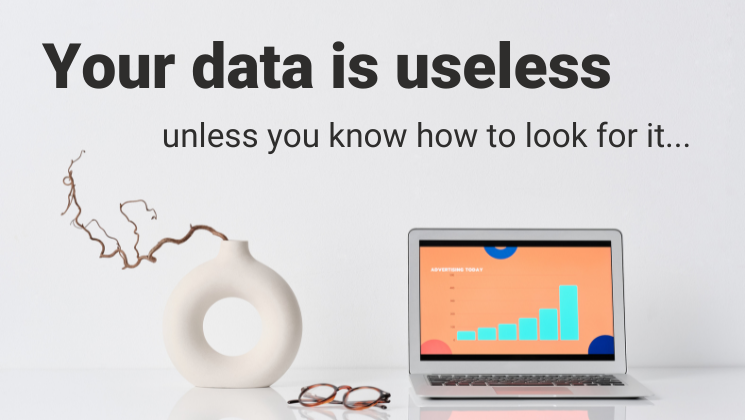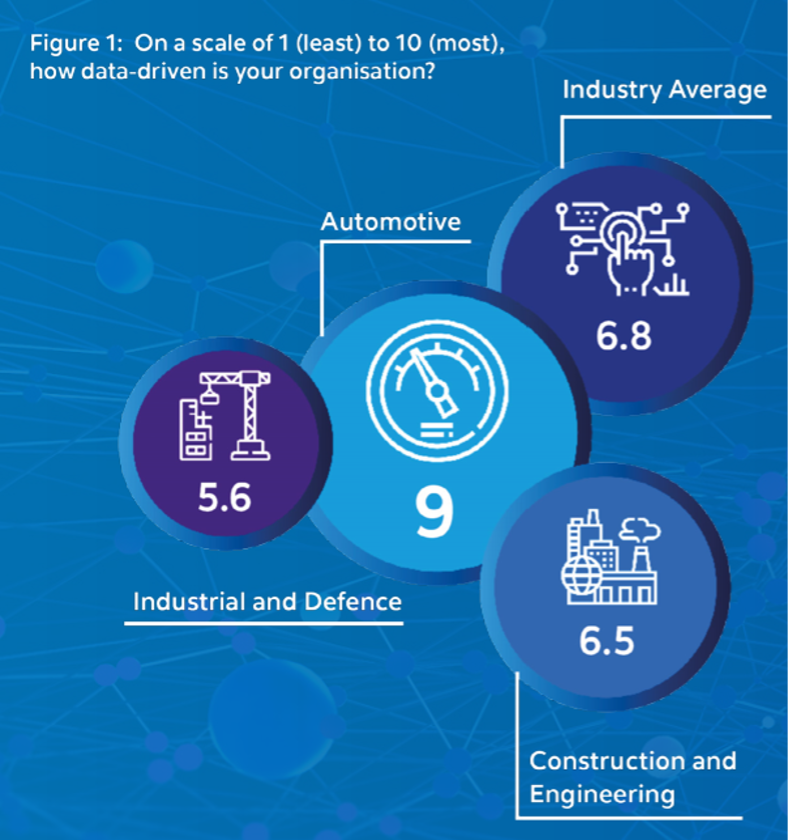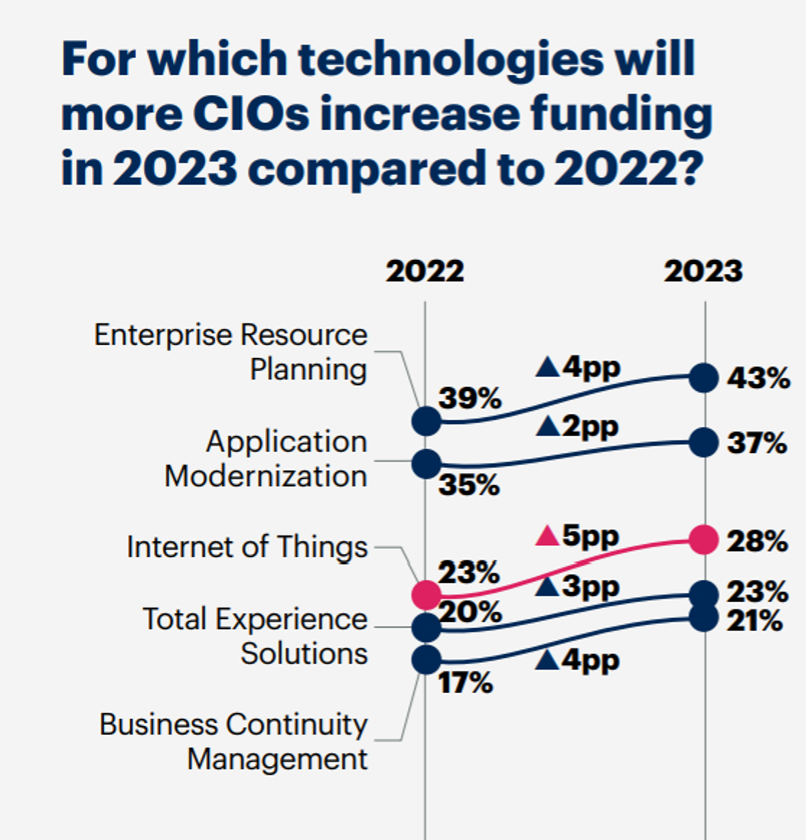Data is useless
From weather forecasts that help us plan our day to social media platforms curating content based on our preferences, data shapes our everyday experiences. Movies recommended on streaming platforms and navigation apps guiding us through traffic — all of these are backed by data-driven algorithms.
But what if we told you that for many companies, data remains untapped and seemingly useless?
In this article, we'll explore the untold story of data and how — in the hands of the right mindset and technology — it can become a treasure trove of insights and opportunities.

"Data is useless" might sound like an outrageous claim. Before you agree it is, think about the following:
Imagine a vast field of cotton. As far as your eyes can see, there are stalks of cotton, swaying gently in the breeze. But cotton fields are useless unless you can harvest, clean and weave cotton balls into fabric. Right?
That’s the same with data.
So why is this “harvesting” of data something companies struggle to do successfully?
3 reasons why companies struggle to harness data
The reasons vary from company to company. Based on our experience and communication with clients and partners, we have defined three major reasons preventing companies from squeezing maximum value from their collected data:
The technical puzzle
Most companies lack the technical infrastructure and expertise needed to collect, extract, store, and process data effectively. Without the right tools and systems in place, data might as well be a jumble of numbers in a void.
The hesitation to act
Companies often hesitate to base their decisions on data insights. Decision-making processes can be lengthy; organisations might be unaccustomed to integrating data into their strategies. Also, a lack of data literacy among decision-makers can hinder their ability to comprehend and act on data-driven recommendations.
The human factor
As humans, we are wired to trust our intuition over data. While intuition and experience may help in certain situations (such as understanding a client’s pain points), data-backed insights are superior in many aspects of the business.
Ratibor Libal, Actum’s Co-founder states, “People believe they are smarter than data. I’ve seen this many times.” Humans often fall prey to Confirmation bias.
Consider an A/B test where data clearly indicates that option A performs better than option B. Yet, a manager might react with skepticism, asserting that option B "feels" like the better choice.
Another cognitive bias is the "Illusion of Validity," where individuals overestimate their judgement.
These pitfalls are understandable. Data often offers non-intuitive solutions, challenges established beliefs or suggests courses of action that we instinctively dislike.
Making “Useless data” Useful
To rephrase Agent Smith from The Matrix: "Tell me, Mr. Anderson. What good are data, if you’re unable… to read?"
Data's worth is tied to our ability to interpret and make sense of it. Much like the green code in The Matrix, data holds profound insights for those who possess the skill to decipher it.
But what if you can’t?
If the process of setting up a data operations platform to visualise and analyse your company’s data seems daunting, you’re not alone. A study conducted by Cognizant found that on average across industries, the manufacturing industry scores 6.8/10 on data-drivenness.

One of the main challenges in the manufacturing industry is that data is generated in compartments. These compartments are watertight, such as business units and geographies.
Sometimes, the nature of a particular sector can make it challenging to data analytics. For example, in construction, projects are highly specific from client to client. This prevents teams from effectively visualising historic project data.
This is where it becomes critical to tie up with a data analytics partner. Remember the cotton fields thought experiment? Think of a data analytics partner as a robot that harvests, cleans, and weaves your cotton into fine fabric, helping you take the textile market by storm!
Embracing the Data-driven Approach
Based on our insight, businesses do want to work with data. But they often get discouraged by perceptions around the complexity of data science. Decision-makers often feel that there are many technological steps to be taken before anything of value can emerge.
Let us bust that myth for you. There are only two dimensions to leveraging data analytics successfully. But they are critical. The extent to which your business prospers with data analytics depends on:
- People & Mindset
In a 2023 study by Gartner, business executives continue to have high expectations from their data analytics capabilities, even though emerging technology adoption is in early stages. These emerging technologies include Cloud Data Ecosystems, Data-centric AI, Augmented Data Analytics, and Decision Intelligence (among others). To meet business expectations in key strategic areas, 74% leaders are piloting emerging technologies, with 21% of these technologies being deployed in 2023.
Gartner research also shows that 80% of CEOs are increasing digital technology investments to counter current economic pressures in manufacturing, including inflation, scarce talent, and supply constraints.

In short: to leverage data analytics successfully, your leadership needs to embrace a data-driven approach.
- Tools & Technologies
Data is invaluable, but its value lies in accessibility and usability. If you can't leverage your data, its worth diminishes. Your business team requires data access to make decisions, test, and pilot projects. If technology hampers their agility and effectiveness, it's time for a change.
We've recently joined forces with Keboola technology, a cloud-based data platform. With Keboola's powerful data tool and Actum's expertise in seamless integration, you can now focus on harnessing the insights from your data without wasting time on tedious preparation, setup, and technical details.
Once your legacy data tools are successfully integrated, your data processing time will dramatically reduce. Think weeks cut down to just hours!
So, let us handle the complexities while you make data-driven decisions effortlessly.
Ready to Dive into Data?
If you're ready to unlock the hidden potential of your data, our system integration experts can guide you through every step of the journey, starting with evaluating the current situation to help you take full control of your data. Book a free 30-minute consultation to discuss the current state of your data.
You may also like...

[19/05/2023] How Big Data Analytics Impacts Manufacturing & Supply Chain
Unleash endless possibilities in manufacturing supply chain operations with big data analytics. Discover implementation steps for maximum benefits.
Read the Insight
[11/05/2023] Challenges Manufacturers Face in Managing Sales and Marketing Data
Learn about the key challenges manufacturers face in managing sales & marketing data, how to address these issues and improve business outcomes.
Read the Insight